-
 Hội thảo “Thực trạng người Việt Nam hồi hương từ Vương quốc Anh giai đoạn 2014 - 2023”
Hội thảo “Thực trạng người Việt Nam hồi hương từ Vương quốc Anh giai đoạn 2014 - 2023”
-
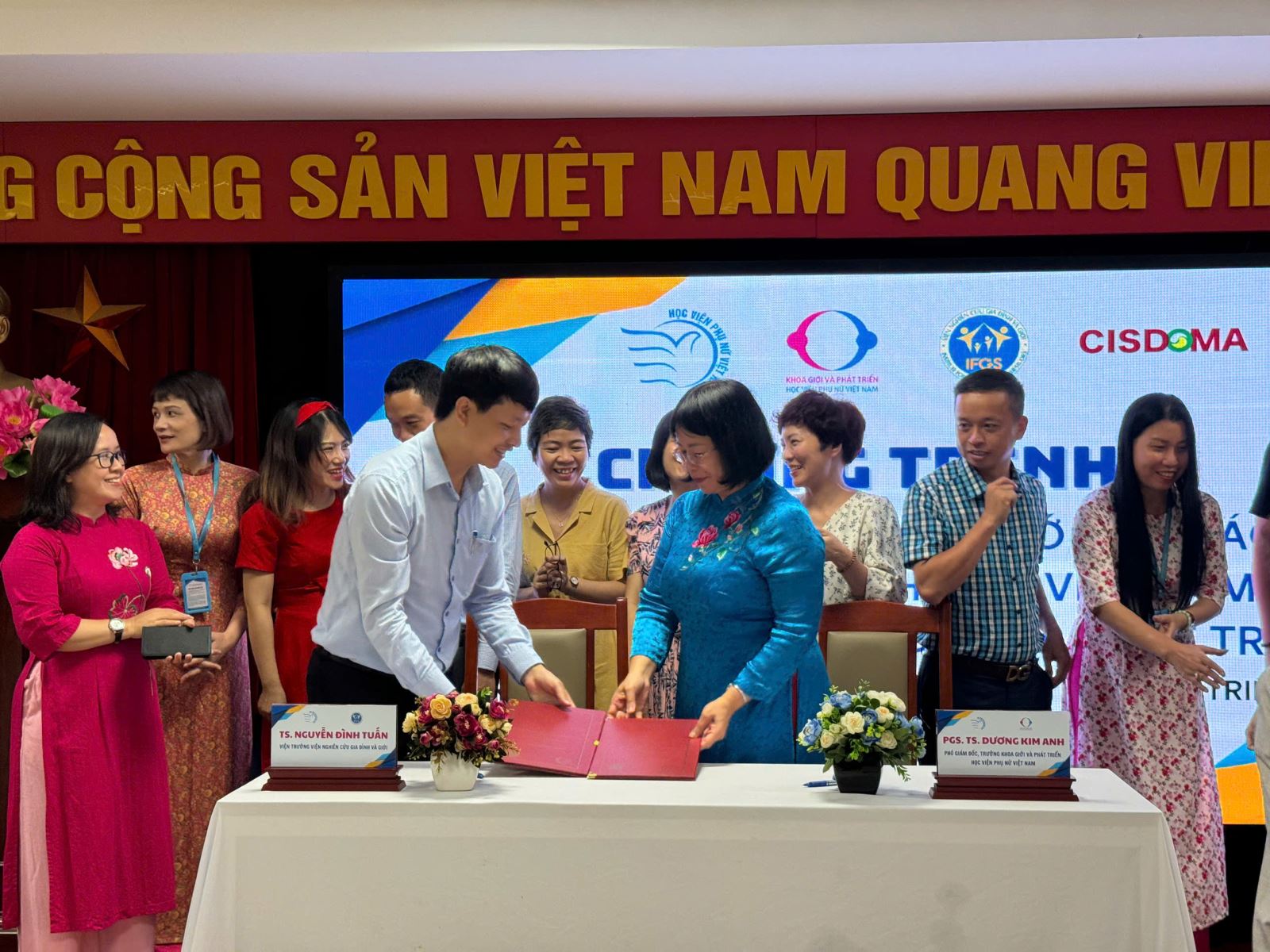 Lễ Ký kết biên bản ghi nhớ hợp tác giữa Học viện Phụ nữ Việt Nam với Viện Nghiên cứu Gia đình và Giới
Lễ Ký kết biên bản ghi nhớ hợp tác giữa Học viện Phụ nữ Việt Nam với Viện Nghiên cứu Gia đình và Giới
-
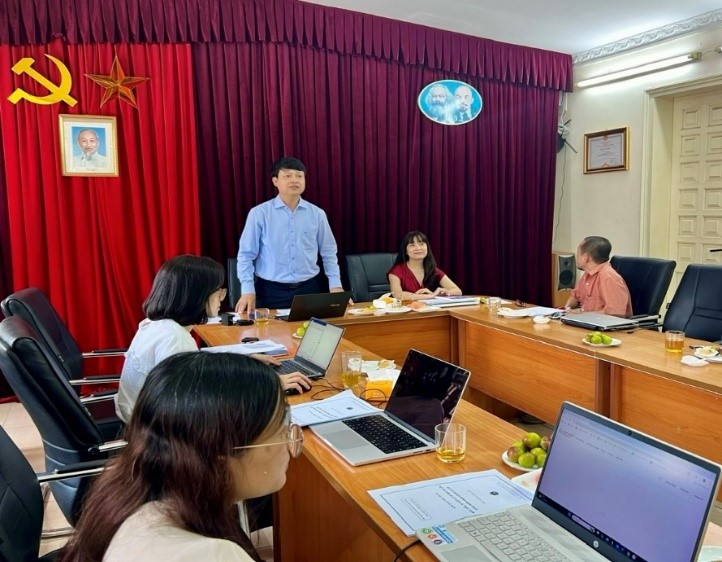 Hội thảo khoa học: "Bộ chỉ số gia đình hạnh phúc: Một số vấn đề lý luận và thực tiễn"
Hội thảo khoa học: "Bộ chỉ số gia đình hạnh phúc: Một số vấn đề lý luận và thực tiễn"
-
 Tọa đàm khoa học "Vận dụng lý thuyết trong nghiên cứu khoa học xã hội"
Tọa đàm khoa học "Vận dụng lý thuyết trong nghiên cứu khoa học xã hội"
-
 Hội nghị Đối thoại giữa Chi ủy, Lãnh đạo viện với đảng viên, viên chức và người lao động Viện nghiên cứu Gia đình và Giới 6 tháng đầu năm 2024
Hội nghị Đối thoại giữa Chi ủy, Lãnh đạo viện với đảng viên, viên chức và người lao động Viện nghiên cứu Gia đình và Giới 6 tháng đầu năm 2024
-
 Chi bộ Viện nghiên cứu Gia đình và Giới tổ chức sinh hoạt chuyên đề: Đoàn kết thống nhất trong Đảng theo tư tưởng Hồ Chí Minh
Chi bộ Viện nghiên cứu Gia đình và Giới tổ chức sinh hoạt chuyên đề: Đoàn kết thống nhất trong Đảng theo tư tưởng Hồ Chí Minh
-
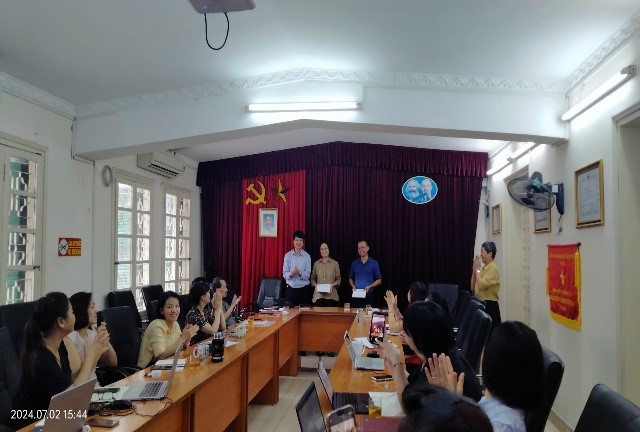 Cuộc thi “Nét đẹp và giá trị gia đình Việt Nam” hưởng ứng Ngày Gia đình Việt Nam 2024
Cuộc thi “Nét đẹp và giá trị gia đình Việt Nam” hưởng ứng Ngày Gia đình Việt Nam 2024
-
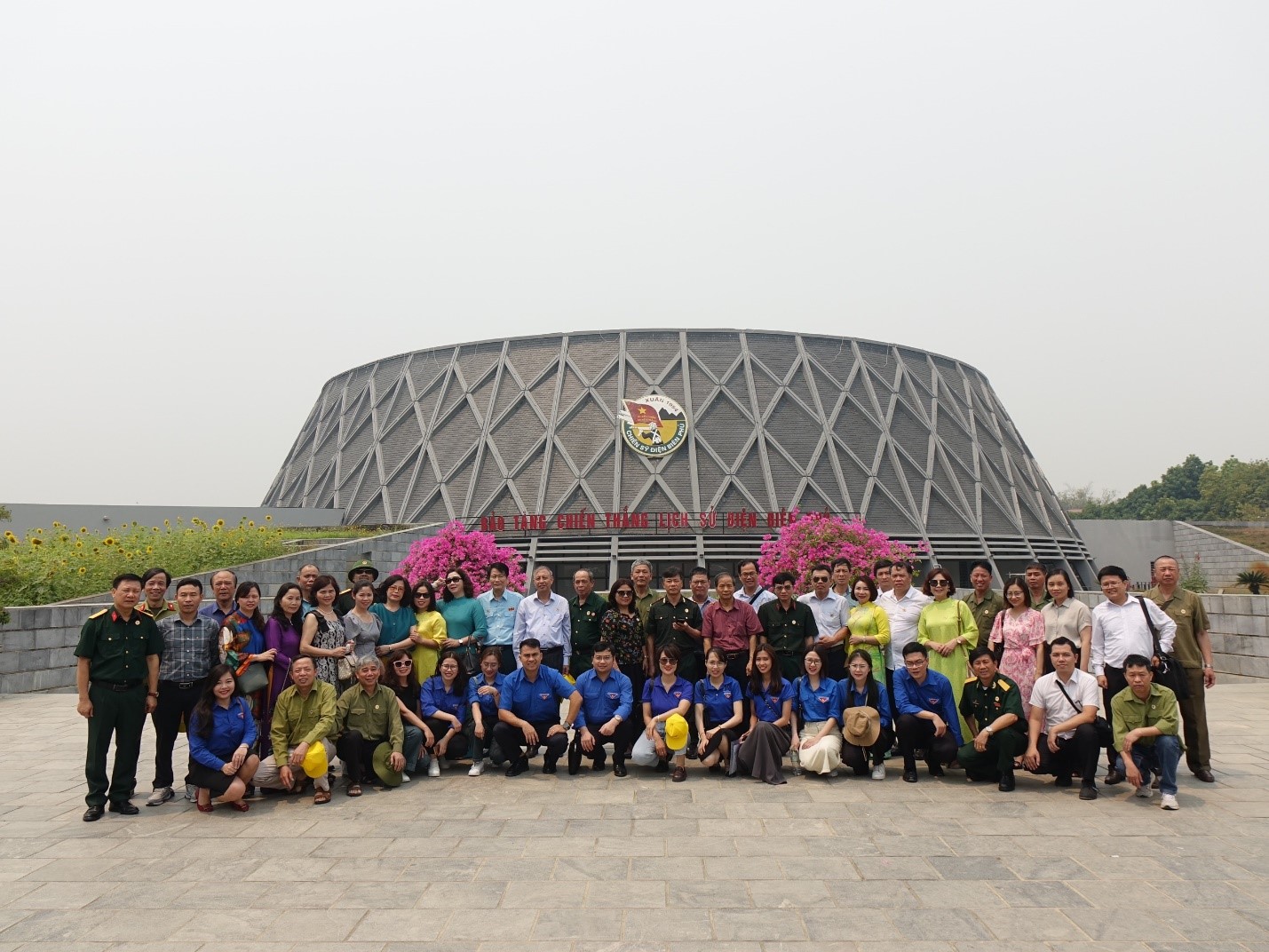 Hội Cựu chiến binh, Đoàn Thanh niên Viện Hàn lâm Khoa học xã hội Việt Nam đi thăm lại chiến trường xưa Điện Biên Phủ
Hội Cựu chiến binh, Đoàn Thanh niên Viện Hàn lâm Khoa học xã hội Việt Nam đi thăm lại chiến trường xưa Điện Biên Phủ
- Tổng mục lục Tạp chí 2023
-
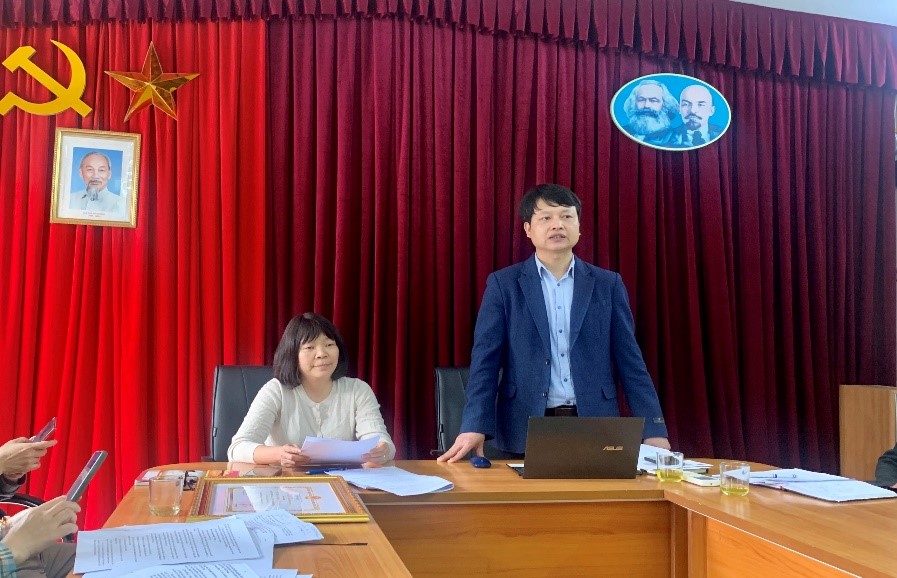 Viện nghiên cứu Gia đình và Giới phát động phong trào thi đua và ký Giao ước thi đua năm 2024
Viện nghiên cứu Gia đình và Giới phát động phong trào thi đua và ký Giao ước thi đua năm 2024
48
4752628
13th Next-Generation Global Workshop : “New Risks and Resilience in Asian Societies and the World”
25/12/2020| According to the Decision No. 1093/QĐ-KHXH, dated July 13, 2020 of the President of Vietnam Academy of Social Sciences, Kyoto University, Japan and the Institute for Family and Gender Studies, Vietnam Academy of Social Sciences, and in colaboration with the Institute of Human Studies, Vietnam Academy of Social Sciences, and Vietnam Women Union. co-organised the 13th Next-Generation Global Workshop (NGGW) on 21st-23rd, November, 2020 in the headquarter of Vietnam Academy of Social Sciences, No 1, Lieu Giai street, Ba Dinh district, Ha Noi. |
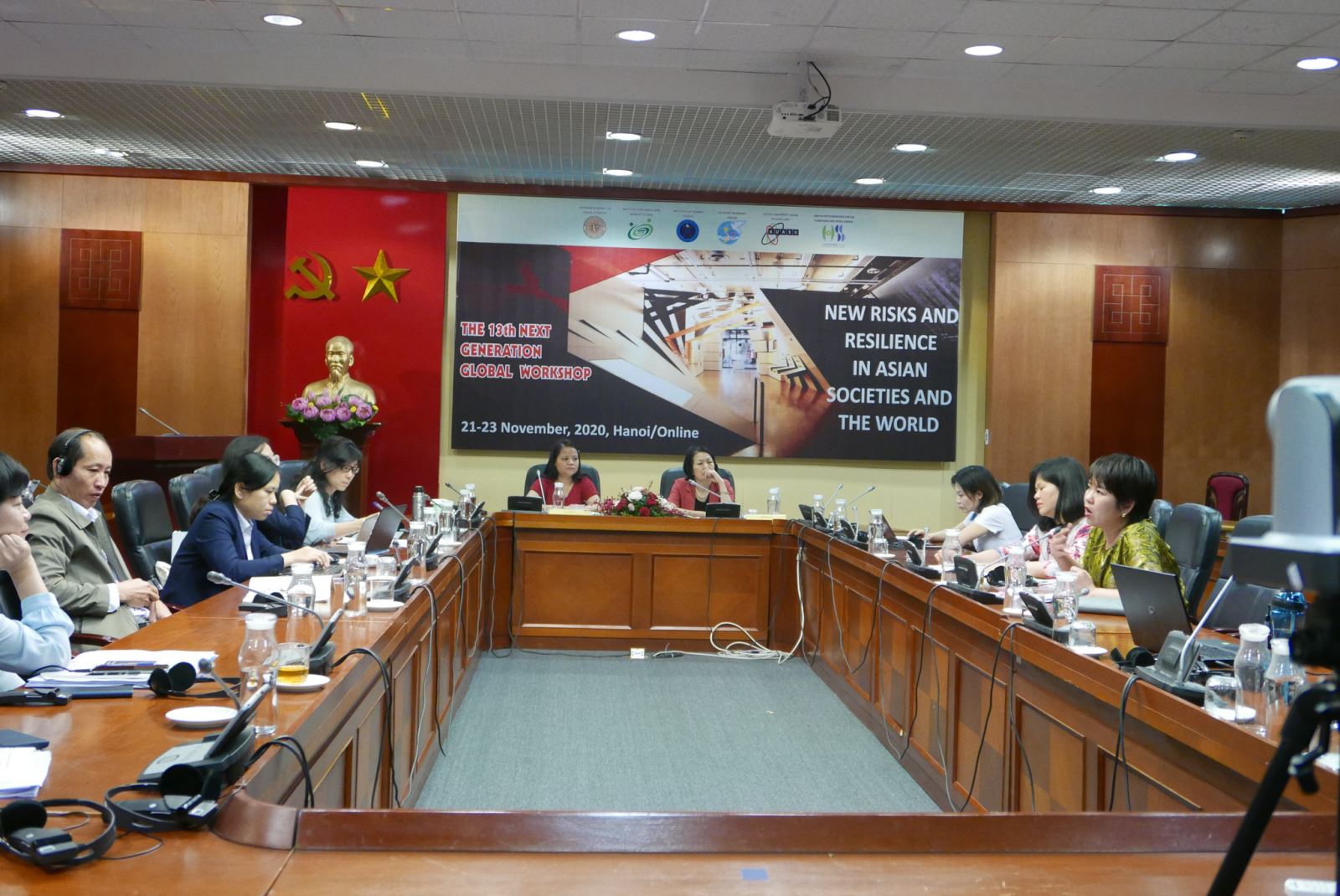
With them theme of “New Risks and Resilience in Asian Societies and the World”, the workshop aims to explore how individuals, families, societies perceive and adapt to risks in a given socio-cultural setting, and investigate alternative dimensions of resilience from an interdisciplinary viewpoint. This is the first time the workshop co-organized between the research institutes and a mass organization (i.e. Vietnam Women’s Union) which has functions in policy advocacy, recommendation, monitoring and criticism. Therefore, parallel with acting as a forum for scholars, the workshop’s research findings will provide theoretical and practical baseline evidence for agencies in policy implementation and advocacy.
Due to the Covid-19 pandemic and the international movement restriction, this is also the first year the workshop combined between a virtual meeting in twelve countries and onsite meeting in Vietnam. In Vietnam, the workshop attracted the participants from various government agencies (National Assembly's Social Affairs Committee, Ministry of Labor, Invalids and Social Affairs, Vietnam Fatherland Front and Vietnam Women’s Union), embassies and international organizations such as Australian Embassy or International Organization for Migration, universities and research institutes (University of Social Sciences and Humanities Ha Noi, Ho Chi Minh city University of Social Sciences and Humanities, Vietnam’s Women Academy, Academy of Journalism and Communication, Vietnam National Institute of Culture and Art Studies, etc.), , …), domestic organizations (Institute of Population, Family and Children , Research Centre for Gender, Family and Community Development, etc.), and scholars from Vietnam Academy of Social Sciences.
Regarding the online site, the workshop attracted 29 represents from eleven countries and territories in four continents including Canada, Hungary, Ukraine, Japan, China, Bangladesh, India, Malaysia, Singapore, Taiwan and Madagascar. There are 9 professors, associate professors or leaders of governmental agencies from six countries (the United Kingdom, Finland, Japan, Korea, China and India) chairing concurrent sessions. The workshop recorded 298 online visits from various parts in the world.
In the opening remarks, Assoc. Prof. Tran Thi Minh Thi – General director of the Institute for Family and Gender Studies introduced the history, reasons to choose to the 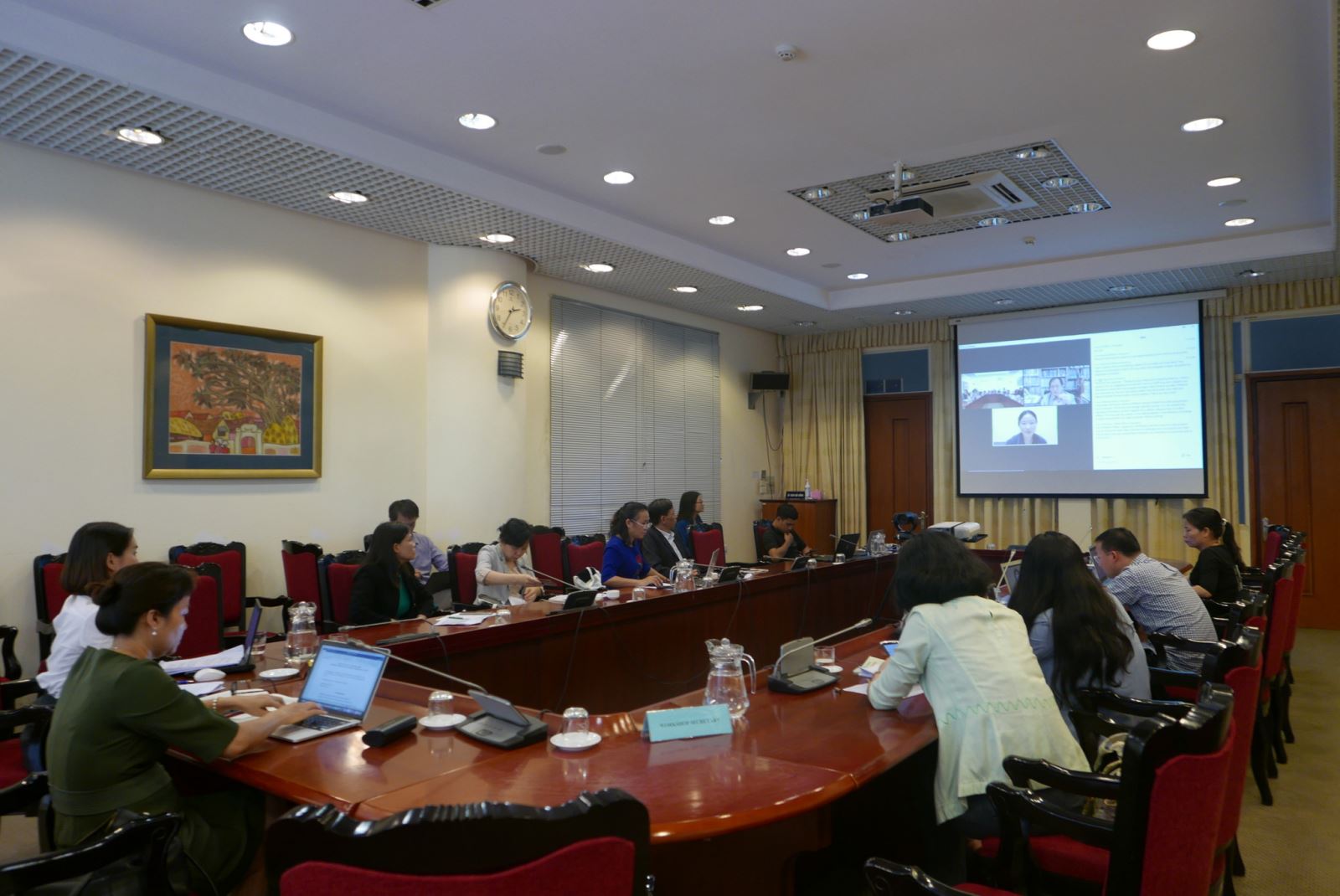
Then, Prof. Dang Nguyen Anh – Vice president of Vietnam Academy of Social Sciences, Prof. Emiko Ochiai, Director of Kyoto University Asian Studies Unit (KUASU), Kyoto University and Dr. Bui Thi Hoa, Vice president of Vietnam Women’s Union gave the opening speeches. Prof. Dang Nguyen Anh showed his appreciations to co-organize this interesting and meaningful global workshop with colleagues in Kyoto University and Vietnam Women’s Union and expressed gratitude to all partners’ continuous support and collaboration to have this workshop organized today regardless of geographical distance and the pandemic. Dr. Bui Thi Hoa highly appreciated the opportunity to be invited to co-organize this important workshop. Vietnam Women’s Union hopes that a vivid panorama of Asian society is described to help the Union to propose scientific evidence based interventions to contribute to ensure economic development and social sustainability of Asian countries.
The workshop included two plenary sessions and eighteen concurrent sessions. There were four presentations in two plenary sessions comprising of “Impacts of Covid 19 on gender relations” by Prof. Emiko Ochiai, Kyoto University, Japan, “Gender and Caste Violence in India: Past and Present” by Prof. Jyoti Atwal, Jawaharlal Nehru University, India, “Does community care? The Intergenerational Self-Help Clubs in Ha Tinh province, Vietnam” by Assoc. Prof. Kato Atsufumi, Kyoto Sangyo, Japan, and “Nutritional Status of the Reserved Category Educated Women in University Studies in India” by Emeritus Prof. Maitreyee Bardhan Roy, Adamas University, India. These presentations sketched an overall picture of significant changes in Asia societies in the contemporary globalization context.
 There are 9 topics in 18 concurrent sessions in the workshop including (1) The impact of climate change and resilience in the face thereof; (2) Gender (in)equality; (3) Transformation of marriage and families; (4) Population aging and social issues; (5) Migration; (6) Social security, human security and human rights in Asia; (7) Labor market flexibility and adaptability; (8) Economic development patterns and trends; and (9) Pandemic. Each concurrent session has three presentations of junior researchers and postgraduate students. Besides the comments from online and offline participants as regular workshop, each presenter received detailed feedback from a professor who had been assigned to read the full papers to give comments. The professor’s comments will be important guiding ideas to help junior researchers and postgraduate students review and complete their papers to publish in the conference proceedings.
There are 9 topics in 18 concurrent sessions in the workshop including (1) The impact of climate change and resilience in the face thereof; (2) Gender (in)equality; (3) Transformation of marriage and families; (4) Population aging and social issues; (5) Migration; (6) Social security, human security and human rights in Asia; (7) Labor market flexibility and adaptability; (8) Economic development patterns and trends; and (9) Pandemic. Each concurrent session has three presentations of junior researchers and postgraduate students. Besides the comments from online and offline participants as regular workshop, each presenter received detailed feedback from a professor who had been assigned to read the full papers to give comments. The professor’s comments will be important guiding ideas to help junior researchers and postgraduate students review and complete their papers to publish in the conference proceedings.
There were 54 full papers from the scholars in various countries presented in the concurrent sessions and 4 presentations were reported in the plenary session, and many of them are original works. After each presentation, there were fruitful discussions from professors, chairs, and audience both online and onsite. The participants of the workshop expressed their deep attitude for the great opportunity for formulation of new networking and friendship, gaining academic knowledge and the meaningful linkage between the academic research findings and implications to policy development and advocacy.
In the conclusion remarks of the workshop, the workshop organizing committee would like to thank all online and offline participants who attended the workshop and gave their useful comments. The participants highly appreciated the quality of the presentations at the workshop; the opportunity to exchange and gain knowledge about social sciences and interdisciplinary approach, especially knowledge about people’s response and adaptation to new circumstances. The participants also greatly valued the efforts and determination of the organizing committee in organizing an international workshop during the complicated situation of Covid-19 pandemic as well as in connecting scientists with policy advocacy agencies to bring research results closer to the policy advocacy process.
Nguyen Ha Dong and Phan Huyen Dan
Các tin cũ hơn.................................................

